University Business Information Technology Annotated Bibliography
VerifiedAdded on 2023/06/10
|5
|879
|373
Annotated Bibliography
AI Summary
This annotated bibliography examines the article "Toward a View of Complementarity: Trust and Policy Influence Effects of Corporate Social Responsibility and Corporate Political Activity" by Liedong et al. (2015). The paper investigates how non-market strategies, specifically Corporate Social Responsibility (CSR) and Corporate Political Activity (CPA), can establish and enhance a firm's competitive advantage. The article emphasizes the role of trust in the relationship between firms and the polity, arguing that CSR and CPA should be aligned to effectively influence government policy. The bibliography analyzes the strengths of the article, such as its detailed exploration of organizational trust and its role in non-market strategies, as well as limitations, including the lack of detailed analysis on the stability between CPA and CSR. It highlights the value of non-market approaches in creating competitive benefits for organizations and the interplay between CSR and CPA in fostering trust and influencing policy.
1 out of 5
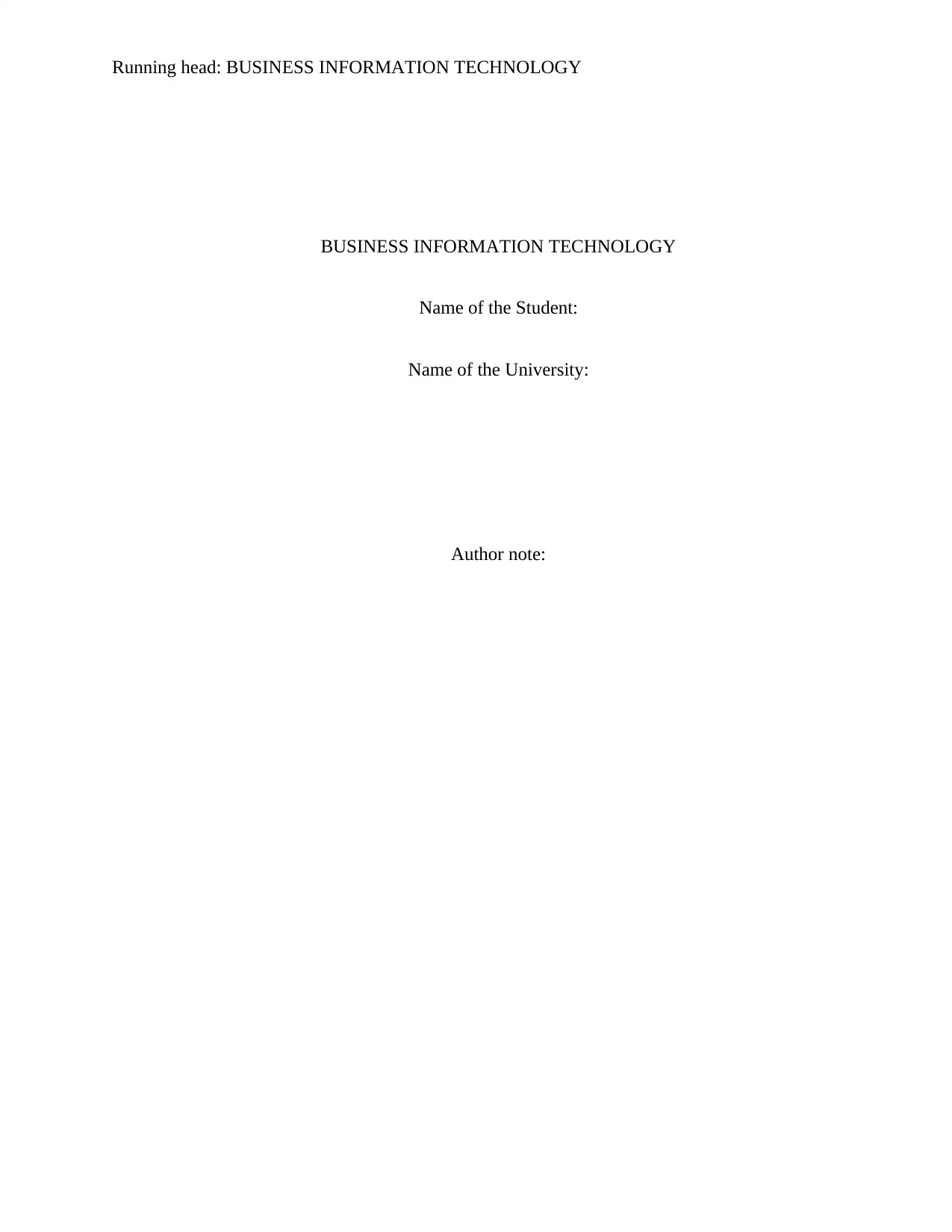
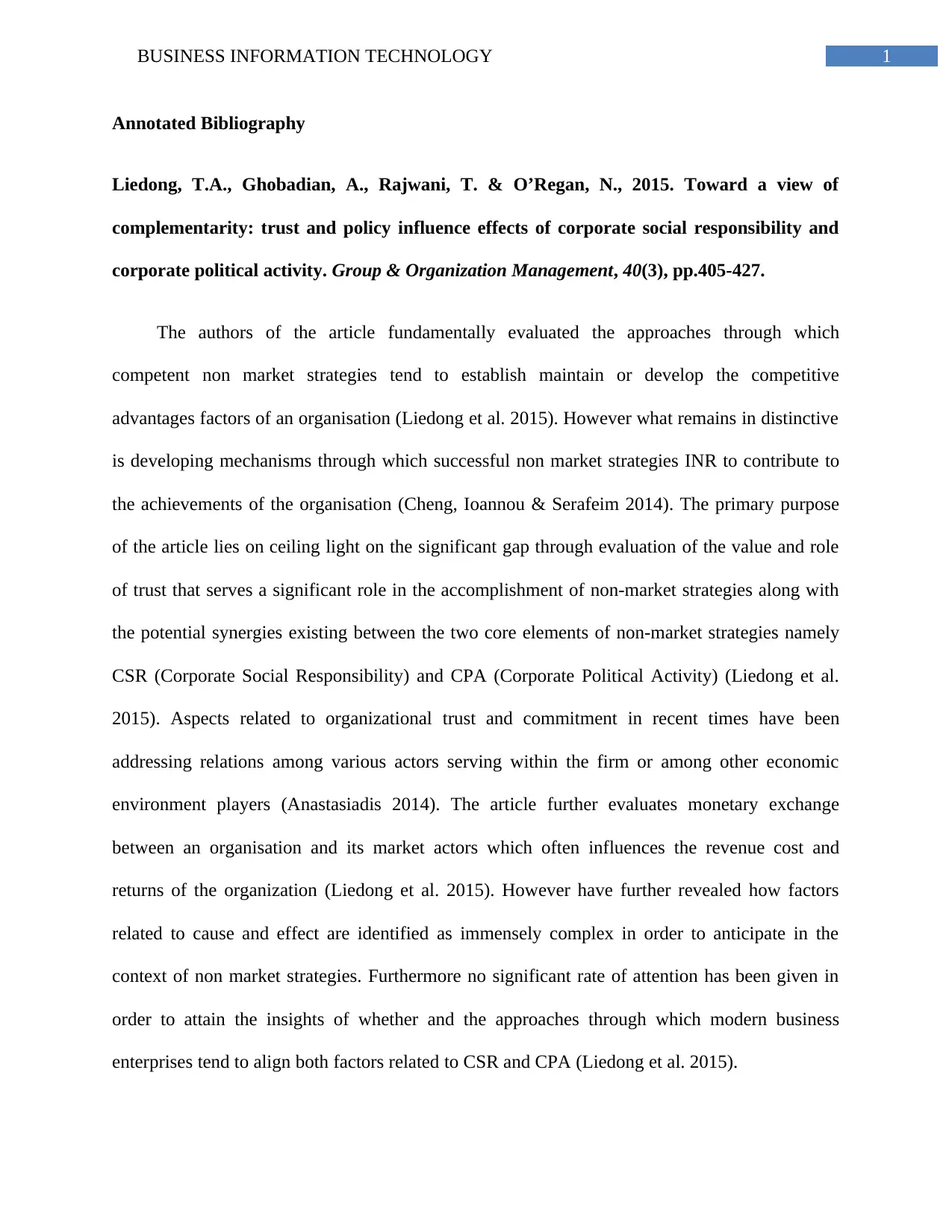
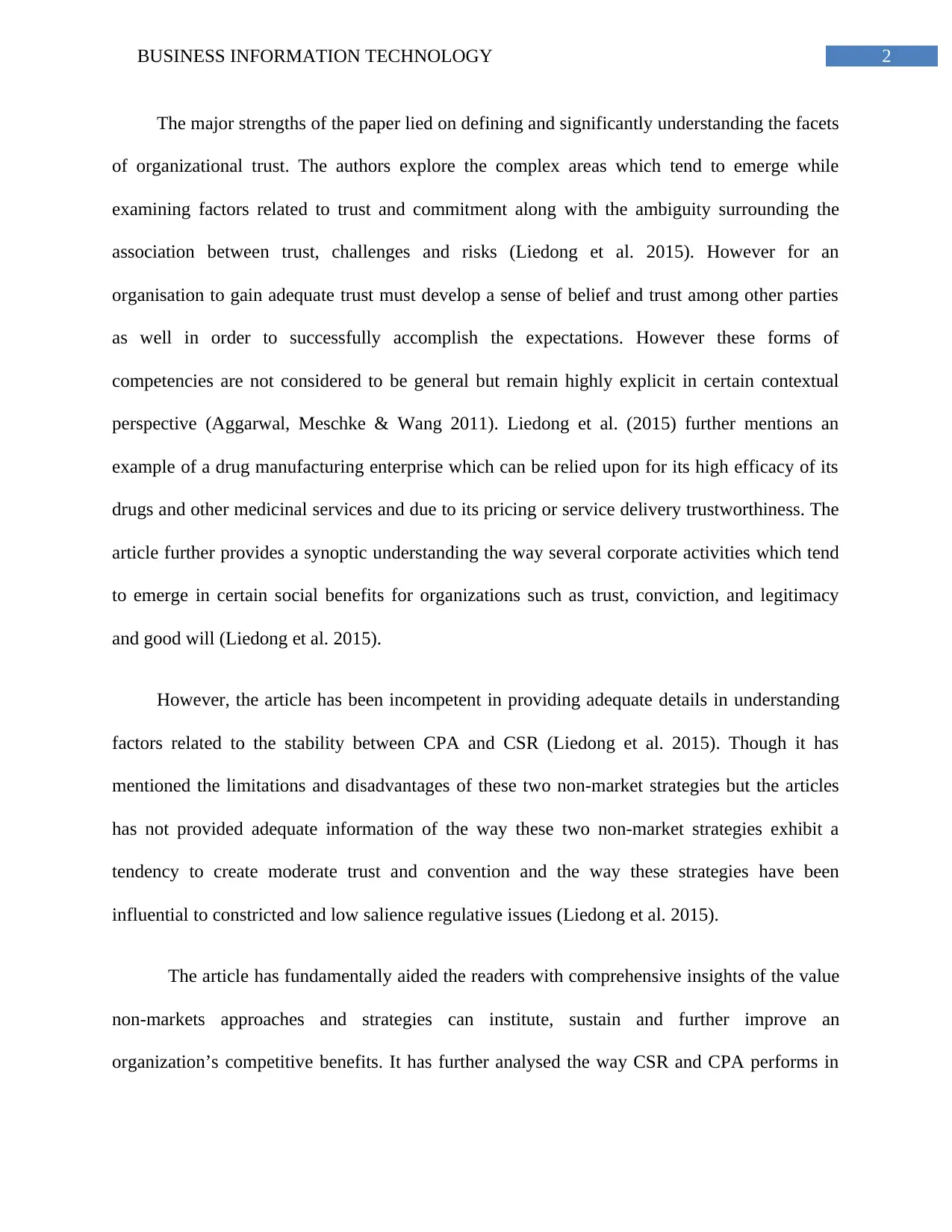

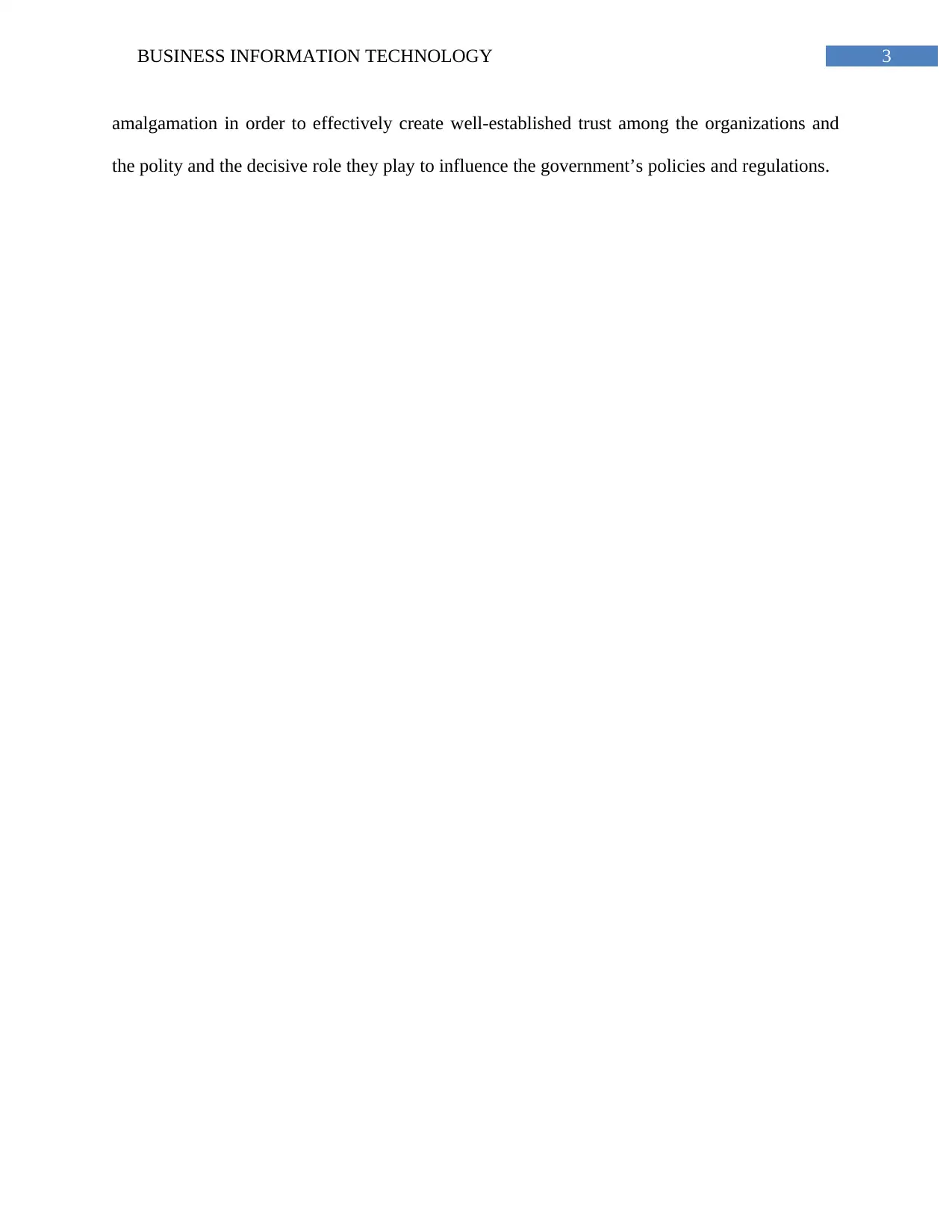
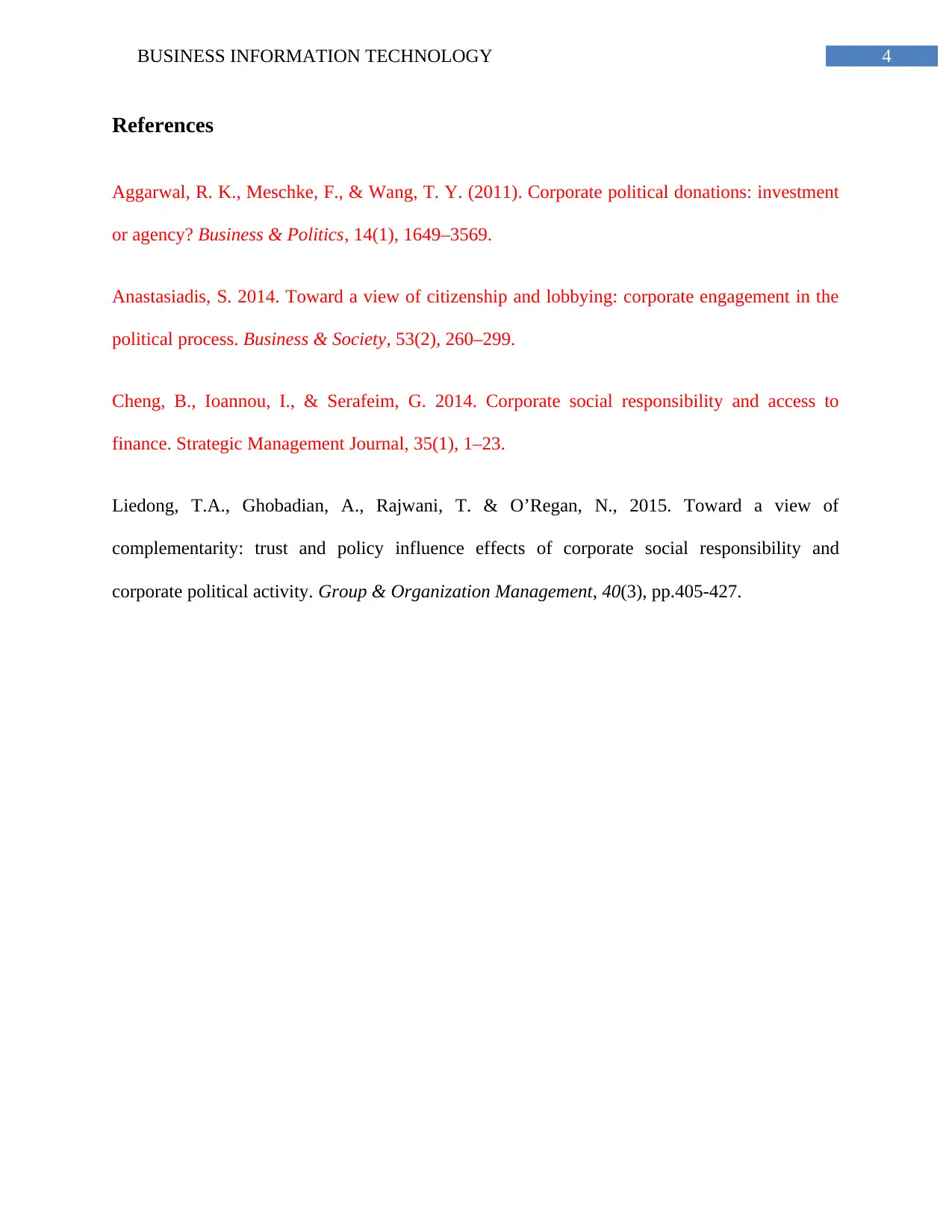





![[object Object]](/_next/static/media/star-bottom.7253800d.svg)